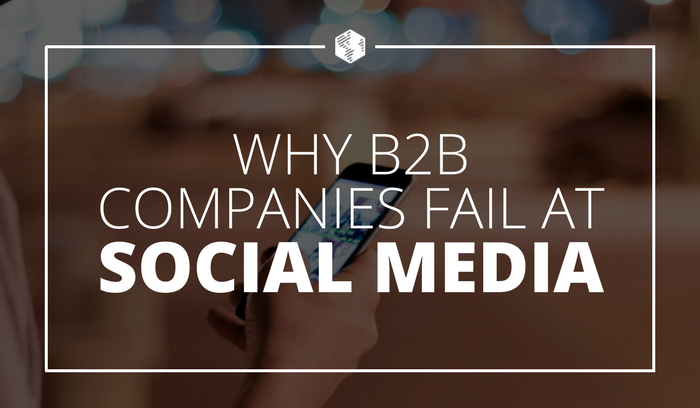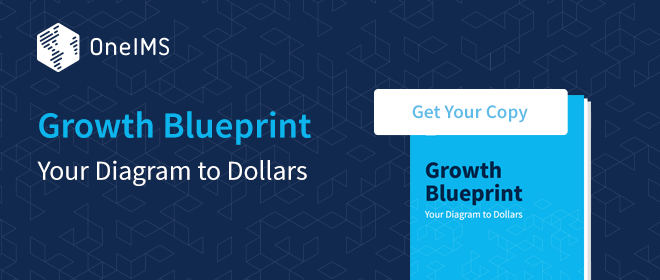Table Of Contents
Social media is one of the best lead generation tools for just about any online business. However, if it isn’t used appropriately, it can simply be a waste of time. Without the right approach, plan, and execution, your social media posts will go unnoticed and ignored.
B2B brands can avoid this scenario by making the right shifts to their social media strategies. When you create a plan, consider the influencers you’re targeting, and use the right platforms, you can become more successful on social media. The result is often increased traffic and additional conversions.
Let’s take a look at three of the biggest reasons B2B companies fail at social media—and find out what you can do to avoid those mistakes!
Key Takeaways:
- Creating a social media strategy helps you move closer to achieving your overall business goals.
- Targeting the right individuals on the correct platforms can improve the connections you make.
- Your social media platforms need to display a clear brand personality.
1. They Don’t Create a Strategy
Many small brands believe they don’t really need a strategy to post on social media. Instead of taking the time to plan out how each social media post will move followers closer to becoming customers, they simply share whatever content they find interesting that day. In some cases, they may go weeks or months without ever updating their profile. Unfortunately, this approach rarely attracts the audience attention needed to truly grow a business.
Developing a social media strategy before you begin posting can help you be more productive and successful on your chosen platforms. When you create a strategy that considers your overall business goals, you can more easily work on achieving the expectations you’ve laid out for your brand as a whole.
What’s more, a solid social media strategy can help you connect more fully with your audience, since you’ll be able to provide targeted content that answers their questions and helps solve their problems. It will also provide you with benchmarks to track your success against, and make it easier to direct leads into your regular sales funnel. This social media post from Sprout Social, for example, is part of their overall strategy to bring social media users to their website:

If you need to create a social media strategy from scratch, first take a look at your overall goals. Consider what direction you’d like to move your company in, and decide how your social profiles can help you do that. Then set SMART goals for your social media platforms, including due dates, measurable metrics, and realistic expectations. After that, you can use tools like Google Analytics to help you identify how well your social media followers are converting into leads and customers.
2. They Don’t Consider the Influencers They’re Targeting
When planning your B2B social media strategy, your first thought is probably about the companies you’d like to target. While the businesses are your direct customers, it’s important to remember that certain people within the company are in charge of making decisions. In order to maximize new sales, you need to connect with these influencers.
Within a B2B company, there are typically influencers and decision makers. While decision makers may have the ultimate say in what purchases are made, influencers understand the problems, struggles and difficulties the business faces each day. They also understand how to relay potential solutions to the decision-makers, in order to close a sale. By connecting with these influencers, you can encourage someone inside the company to push your product or service towards the person actually in charge.

To reach these individuals, you want to target both their company and personal accounts. In the example above, we see Netvantage Marketing trying to connect through a Twitter Chat, another smart strategy. Using identifying factors such as job title, you can design your social media posts to reach more than just your target brands. By getting your content in front of these influencers on their own personal accounts, you can make a stronger connection with the individuals who matter most.
3. They Use the Wrong Platforms
Many companies simply jump onto social media because they know they need to be there. Rather than taking the time to consider which platforms could truly be beneficial to them, they sign up for every platform they know is popular. This causes them to feel overwhelmed, and usually offers few results.
Using the right platforms is just as crucial as targeting the right people. For a B2B brand, providing education and information is much more important than being entertaining or offering traditional viral content. This means that certain platforms, such as LinkedIn, will be more beneficial to a B2B company than a site like Tumblr or Snapchat. The post below is an example of content that would perform well on LinkedIn, but probably not on another platform:

Of course, the right platforms for your company will depend on who your audience is. You’ll want to aim your marketing efforts at where your target customers hang out most. This means you need to know exactly who you’re trying to attract, what they’re looking for online, and how they spend their time on social media.
Bonus: They’re Not Creating a B2B Brand Personality
The main factor in your social media success is whether or not you’re able to make lasting connections with your target audience. If you’re unable to stand out from the crowd and grab the attention of an engaged group of followers, you won’t have any luck convincing them to purchase from you.
Each time you post on social media, you need to display a clear brand personality. This should not only reflect who you are and what you do, but should give a voice to your company that your target audience can connect with. A great brand personality humanizes your content, and shows that there are real, genuine people behind your company. This example post from Dropbox does a great job of infusing personality into content:

Your brand personality should be derived from what your target audience is looking for. This means it should consider things like the kind of language they use, the content they enjoy, and other factors that help you connect to the community you’re trying to engage. For a B2B brand, this typically means remaining professional but still allowing yourself to appear fun, friendly, and conversational.
Conclusion
Making poor choices on social media can seriously hurt your business. If you’re not taking the time to properly think through how each social media post you create can bring value to your target audience, you’re going to struggle to make lasting, genuine connections. However, if you take the proper steps to solve your B2B social media marketing mistakes, you can attract more potential customers.
Let’s take a look at the four things you should do to avoid failing on social media:
- Create a strong social media strategy that moves you closer to achieving your marketing goals.
- Focus on connecting with company influencers, rather than the company as a whole.
- Find the appropriate social media platforms for your target audience.
- Allow your brand personality to shine through on social media.
How do you think these strategies will improve your social media success? Let us know in the comments section below!







